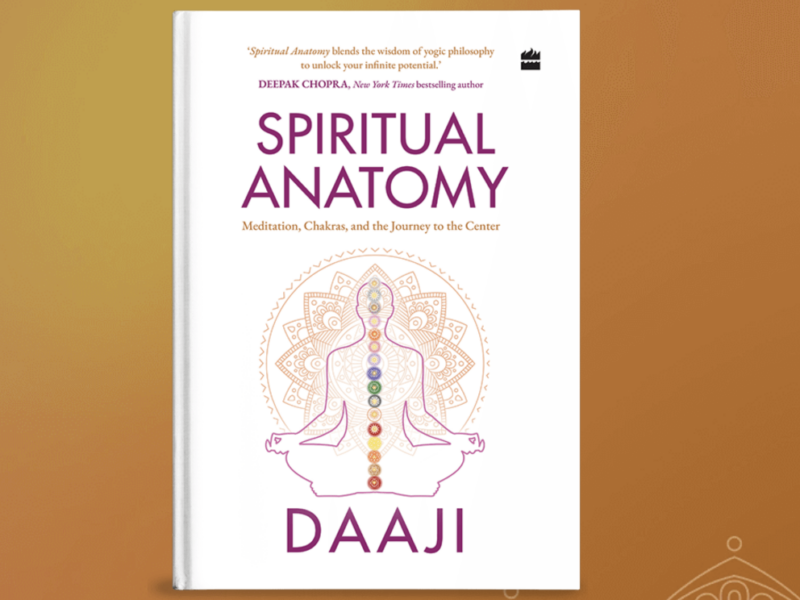Singer, composer and guitarist Prabhu Miten tours the world with his partner, Deva Premal, sharing sacred mantras and original songs that open audiences to inner peace and meditation. Much of their time is spent constantly on the road, but no matter where he is on the planet, he always feels at home.

By Suvi Mahonen
December 1980. The world was reeling from the tragic assassination of rock legend John Lennon. And as Lennon’s single “(Just Like) Starting Over” topped the US and UK charts, an orange-robed young man stood in front of a chopping board, in a communal kitchen in Suffolk, England, slowly slicing carrots.
Nobody would have guessed that the unassuming man with the dark hair and modest beard was a former well-known rock musician. They could not have imagined that just a few short years ago, the same man, who prepared vegetables every day for the ashram, had opened for bands such as Fleetwood Mac, The Kinks, and Hall and Oates. Nor could they have known that behind his humble smile and patient concentration was a man wracked with guilt and pain.
For over a year, Miten—formerly known as singer/songwriter Andy Desmond—had been living in what he describes as a ‘psychologically raw and naked’ state in the ashram of Indian mystic Osho. Life in the ashram was a world away from the drugs and sex of the London music scene he had felt compelled to walk away from.
“Before I came to Osho, I’d always felt on the periphery of life,” Miten says. “And this was while I was making records, playing concerts, and looking successful to my peers. But inside I was far from fulfilled.”
Miten felt disillusioned as his marriage broke. Confused and searching for answers, he found himself walking out on his family, which included his beloved two-year-old son, Sam. He recalls that moment as the darkest time of his life.
“I felt totally responsible and full of guilt,” Miten, who is now 69, says. “That kind of situation, where you can’t figure anything out, leads to a breakdown. And that was when I hit the bottom.”
It was during this difficult time that a friend gave Miten a book of Osho’s discourses on Zen parables titled ‘No Water, No Moon’, which proved to be transformative. “The book just opened me up,” Miten says. “I realised I owed it to myself to find this man and his community. My quest had begun.”
Miten turned his back on his band and his record company, sold his guitars, and moved to a spiritual commune of Osho devotees, first in Suffolk, then later to the ashram in Pune, Western India.
Miten describes the experience of life in Osho’s commune as both simultaneously nurturing, yet confronting. “I felt like I was in the most amazing place on the planet,” he recalls. “I was surrounded by intense, wonderful, open-hearted people who would look you in the eye and share with you. This was not a social gathering: it was a spiritual exploration. And yes, it was also like living on an abyss because of the nature of the inner exploration that we were all involved in. We were all there to face our demons, and to learn how to love and to accept them.”
Miten spent his days working in the kitchen—preparing vegetables, chopping wood and drawing water from the well. He rang the temple bell. He learned how to meditate. He sang spiritual songs along with about 200 other people who were living in the commune. And even though the songfilled meditations moved his heart, Miten had decided that he was finished with music.
“I felt like a big failure,” Miten says. “I had to drop everything I knew. All my plans and the image of who I imagined I could be in the rock world. One by one, I let everything go. And it was such a relief to no longer identify myself as a musician. When I came into Osho’s world of meditation, the last thing I wanted to do was to carry a guitar-shaped cross on my back.”
But little did Miten know, as he stood in the kitchen and tipped the carrots into the boiling water, that music had not finished with him.
Early Years
Miten was born in Woking, England, in 1947. His parents managed pubs, which meant he spent his childhood moving around a lot. He has memories of many different towns, different schools and different friends. But what kept his world centred, for Miten, was football.
“When I look back on it, I just see what a gift football was,” Miten says. “As a team sport, it taught me that to win, one has to play one’s part in life, one has to show up. It taught me how to lose and to get back on my feet. It also taught me to be clear about my goals in life, and to go for them. It taught me how to share.”
As a child, Miten wanted to become a professional footballer. By the age of 14, however, he began to realise that he didn’t have what he calls the “fire in his belly” required to do so. That same year, The Beatles released their debut album, Please Please Me, and football quickly took a back seat in Miten’s life.
“Eventually my dad recognized this, and was forced to accept that clearly music had claimed me,” Miten says. “Even though he really wanted me to be a footballer, it was obvious there was no way back.” When Miten was 15, he received his best Christmas present ever. “My parents called me into their bedroom on Christmas morning, and told me to look under their bed. And there it was. My first, brand new, acoustic guitar.”
Miten left school soon after and formed folk rock duo Gothic Horizon with former schoolmate Richard Garrett. The duo made a name for themselves playing in folk clubs around England and recorded a couple of albums in the early 1970s. When Garrett got married, however, he decided it was time to leave Gothic Horizon and Miten moved to London to begin a career as a solo performer.

His rise through the UK music ranks was swift. In the years that followed he appeared alongside other talented folk musicians including Fairport Convention, Tom Robinson and Claire Hamill. At his peak in 1977, he was invited to be Fleetwood Mac’s special guest at the Wembley Arena on the UK leg of their historic Rumours world tour.
But it was right at the point where, on the outside, it looked like he had “made it”, on the inside Miten felt lost. “Something was calling, but I didn’t know what it was,” he says.
A Renewed Perspective
Miten talks about his years living in Osho’s community as “a timeless experience”. “As soon as I discovered that world, everything began to exist in the present moment,” he says. “I had stepped out of society, off the grid, and into myself.”
It was in India that he finally discovered what he says is the “true essence” of music. He became entranced by the regular evening meditations among a couple of thousand fellow ashram mates in Pune. And as Miten listened, he found himself electrified by the sheer power of the sound, combined with the congregation’s chanting.
“To me, this was real music,” he says. “Thousands of voices all singing in ecstasy, for no other reason except to say thank you, and to share their gratitude for their existence.”
Before this point, Miten had viewed music through a narrow commercial lens. But as his spirituality grew, he learned to see music as a sacred and valuable tool. Initially, Miten just wanted to be on the receiving end of the music, but that didn’t last for long. “I became hooked on a meditation known as ‘Sufi Dance’,” he says. “Chanting and structured movement, along with a life of communal integration, deeper interpersonal relating, and Osho’s continual inspirational discourses, healed me from the wounds I’d been carrying.” After this, Miten never missed an opportunity to participate in the ashram’s musical sessions.
A New Kind Of Music
Some years later Miten made friends with a young German woman named Deva Premal, who had come to Osho’s ashram in Pune to study healing modalities through meditation. Deva also had a musical background, and as Miten and Deva spent time together they realised they shared a connection. Miten, who was co-ordinating the music for the ashram’s evening meditations, encouraged Deva to sing and play keyboards in the group. Soon it became apparent that not only were Deva and Miten forming a musical bond, they were also starting a life partnership.
In 1992, Miten and Deva headed to Europe to conduct some voice workshops. Their music was mainly intended for the meditation rooms of the Osho centres, but all this changed when their first mantra album, The Essence, unexpectedly shot to the top of the World and New Age charts. On the back of this success, they began to play to a wider audience, bringing mantras into contemporary musical settings such as concert halls, cathedrals, festivals and rock arenas. In 2002, they were invited to play for the Dalai Lama during the “Unity in Diversity” conference in Munich. Their music also made its way into mainstream popular culture when pop star Cher covered Deva’s version of “Gayatri Mantra” on her 2002 world tour. Miten and Deva have since together released 21 albums, with total worldwide sales exceeding one million.
 The Power Of Mantras
The Power Of Mantras
Miten and Deva’s lifestyle continues to be nomadic. They tour the world continually, playing in major cities in more than 45 countries. In the 25 years they have been together, Miten says they have never lived more than six months in one place. The last time they did was in Italy two decades ago.
“People ask, ‘Where is your home?’ and we say, ‘Well, everywhere’,” he says. “Wherever we are, whatever hotel we might be staying in, whatever city, Deva will put up our little altar, with a few of our special things, and that’s it. That’s our home.”
Though the couple hold upward of 100 performances every year, Miten denies that they actually “perform” on stage. “You can’t ‘perform’ mantras,” he says. “Rather, Deva and I are simply there to provide the music for spiritual gatherings, with the responsibility to co-create an environment that deepens the experience of meditation. So the music is always spontaneous, alive and evolving.”
The magic can happen anywhere, according to Deva and Miten’s fans, whether they are playing for six thousand devotees at the Crocus Hall in Moscow, or chanting with the Gyuto monks of Tibet, or singing to prison inmates.
“Wherever we play, once we begin chanting, we surrender to the healing power of the mantras and become participants, along with everyone else,” Miten says. “No ‘performer’. No ‘audience’. It becomes a communal activity, and especially in prisons, it is absolutely inspiring to experience the inmates, some in tears of joy, singing, as they become caught up in the flow of the music.”
The couple regularly receives feedback from a wide range of listeners such as hospice workers, carers of autistic children and war veterans who have all written to express gratitude for having found solace and support in their music. Even neuro-surgeons have reported how Deva and Miten’s mantras help them stay focused during operations.
“As a musician, it is so heart-warming to know that people use your music for their sacred moments. When a loved one is transitioning, or during the birthing process, or at a wedding ceremony, or during a tantric love-making ritual,” Miten says. “We’re honored to be the messengers of this ancient healing modality. We experience music as a key that unlocks the door to the Great Spirit and whether you’re in a prison or whether you’re an autistic child, through the mantras, the key is always available.”
 Coming Home
Coming Home
On Miten’s new album, Temple at Midnight, released by Deva and Miten’s independent record label Prabhu Music, Miten shares a song he wrote titled All is Welcome Here. It is a soulful, rhythmic melody with lyrics that are about redemption, reunion, and letting go of the past. Miten says his inspiration arises from “living in the here and now”, something meditation taught him to do.
“When I meditate, I experience ‘no-mind’, just an awareness of my breath and the sounds around me,” he says. “And within that silence, a love affair for oneself slowly develops. Just you, yourself, making friends with your inner world. And once one arrives at this point, life takes on a more compassionate, and non-judgmental quality.”
Perhaps the only person who is more grateful for Miten’s life-changing awakening is his now 40-year-old son, Sam, whom Miten describes as his best friend. Through perseverance and love, Miten was able to rebuild the bridges with his family, including Sam’s mother. “My son has three boys of his own now,” Miten told me, with unguarded pride in his voice. “He even named one of his sons after me – Mylo Miten – and some years back, he asked me to be his best man at his wedding.”
For anyone who is struggling on their life’s journey, Miten believes it is courageous to go with the flow of life, even though it may appear frightening and uncontrollable. “Everybody feels lost, and everybody feels fearful at some point in their life,” he says. “It doesn’t matter what image you use to cover that up, down at the bottom of it all, there’s fear in all of us. But when you confront that fear, and learn to embrace it, it actually transforms into compassion, and forgiveness, both of yourself, and of others. This, to me, is the essential gift of the mantras and the music we play.”
Suvi Mahonen is a freelance writer based in the U.K. She has written for many publications including The Weekend Australian, The Huffington Post, The Establishment, as well as being a contributor in The Best Australian Stories.
This article was first published in the print edition of Yoga Journal Singapore, which is now Yogahood Online.






